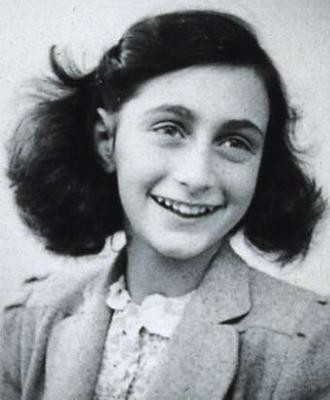
To listen to this reflection as a podcast, click here
Throughout the month of August, we’re looking at Ecclesiastes, that strange and seemingly “modern” Old Testament book that depicts what happens when humanity searches for ultimate meaning apart from God.
She was a teenager with a happy spirit.
“I don’t have much in the way of money or worldly possessions. I’m not beautiful, intelligent, or clever. But I’m happy. And I intend to stay that way. I was born happy. I love people. I have a trusting nature. And I’d like everyone else to be happy, too.”
All she ever wanted to be was a writer.
“I know I can write. A few of my stories are good… But it remains to be seen whether I really have talent…. I always used to bemoan the fact that I couldn’t draw, but now I’m overjoyed that at least I can write… But will I ever be able to write something great? Will I ever become a journalist or a writer? I hope so. Oh, I hope so.”
Her dream came true. She authored a book that appears on numerous lists of the 100 Most Important Books Ever Written.
But Anne Frank didn’t live to see it happen. She died of typhus at age 15 in a Nazi death camp just a few months before the end of World War II.
Anne was born to a Jewish family in Frankfurt, Germany. In the early 1930s, the Franks fled Nazi persecution and moved to Amsterdam in the Netherlands. In 1942 they were forced into hiding. The Franks and another family crowded into several rooms concealed by a bookcase in her father’s workplace.
That June, Anne began recording her thoughts in a journal that she received as a gift on her 13th birthday.
For more than two years she recorded her wry observations about the war, her adolescent emotions and struggles to get along with her parents, and her hopes and dreams about a future she would never get to experience.
Her entries ended abruptly on August 1, 1944. The families behind the bookcase were betrayed by someone who had learned of their hiding place. Only her father survived the Holocaust.
Otto Frank returned to Amsterdam to find that his daughter’s writing had been retrieved by a family friend. Two years later he arranged for the publication of The Diary of a Young Girl. Anne was so shy about her journal that she had never shown it to anyone in her family.
One night she wrote, in the solitude of her improvised sleeping space: “I don’t want to have lived in vain like most people. I want to be useful or bring enjoyment to all people, even those I’ve never met. I want to go on living, even after my death. And that’s why I’m so grateful to God for having given me this gift.”
Today her thoughts are known the world over, and have been published in 60 languages.
“How wonderful it is,” she reflected, “that nobody needs to wait a single moment before starting to improve the world.”
That same spirit elevates Ecclesiastes as the author prepares to bring his book to an end. He kicks off chapter 11 with a call to action: “Cast your bread upon the waters; after many days you may receive a return.”
No one knows precisely what this means. Ethno-archeologists are aware of a practice in ancient Egypt whereby farmers would scatter seed atop the Nile River during its final stage of inundation. As the waters receded, the seeds would be planted along the shoreline and might yield a significant crop.
The New International Version translates Ecclesiastes 11:1 as, “Ship your grain across the sea…” Merchant sailors in the ancient world took their lives into their hands every time they left port. But if they completed a successful voyage across the Mediterranean, the payoff could be huge.
The message is clear: Instead of playing it safe, be adventurous. Take a risk. Roll the dice. Otherwise you’ll never find out what rewards God might be willing to provide.
The author then adds a series of illustrations. Here’s how Eugene Peterson renders the next five verses in his paraphrase called The Message:
“Don’t hoard your goods; spread them around. Be a blessing to others. This could be your last night. When the clouds are full of water, it rains. When the wind blows down a tree, it lies where it falls. Don’t sit there watching the wind. Do your own work. Don’t stare at the clouds. Get on with your life. Just as you’ll never understand the mystery of life forming in a pregnant woman, so you’ll never understand the mystery at work in all that God does. Go to work in the morning and stick to it until evening without watching the clock. You never know from moment to moment how your work will turn out in the end” (Ecclesiastes 11:2-6).
You can spend your whole life pondering what-if’s and what-might-have-been’s. Do you want to do something about that? This is the moment to act.
Write a thank-you note. Forgive that person who hurt you. Stand up for something you know is right. Face the fears that are keeping you from launching a new project. Tell someone you love them.
Is there life after death? The answer to that question lies in God’s hands.
Is there life before death?
Amazingly, it seems that God has left the answer to that question squarely in your hands and mine.
